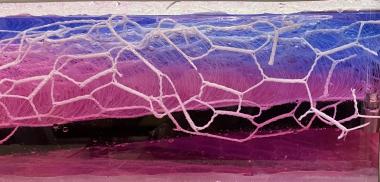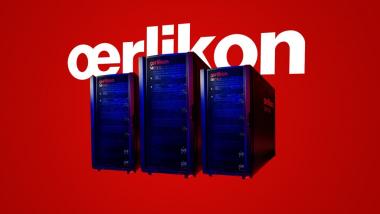Graywater treatment with 3D textiles
The demand for water in Germany is increasing and used water is not being utilized sufficiently. Graywater in particular, i.e. wastewater from showers, bathtubs and washbasins, offers great potential for further use. It can be brought to service water quality on site and reused for flushing toilets or watering gardens, for example. Thanks to flexible 3D textiles, it can even be used in almost any building to save space.
Around 50 to 80 percent of all domestic wastewater is graywater. Until now, large containers and tanks have been needed to reprocess it and return it to the cycle, taking up a lot of space in the building. The German Institutes of Textile and Fiber Research Denkendorf (DITF) and their project partner ARIS have developed a biological, textile-based system.
It is based on a 3D spacer fabric made of highly durable polypropylene. Its advantage is that it can be installed flat and is therefore extremely space-saving. Thanks to its special system geometry, it can be installed in places that would otherwise remain unused - for example in a new building under the floor of an underground garage, on a flat roof or in the garden. It can be modularly adapted to the water requirements and structural conditions in the respective buildings. "Even vertical solutions on facades are conceivable," explains DITF scientist Jamal Sarsour. This means that the graywater treatment system could be used in densely built-up cities in particular.
The system developed by the project partners requires little maintenance and is therefore particularly cost-effective. Compared to previous solutions, it is characterized by a long lifespan. It therefore contributes to sustainable water use and makes a valuable contribution to the circular economy.
ARIS plans to launch the new textile-based graywater treatment system on the market in 2024.
The project will be presented on June 13, 2024 at the SME Innovation Day of the Federal Ministry for Economic Affairs and Climate Protection in Berlin.
The research project with the number 16KN080829 of AiF Projekt GmbH, Berlin, was funded by the Federal Ministry of Economics and Climate Protection as part of the Central Innovation Program for SMEs (ZIM) on the basis of a resolution of the German Bundestag.
Deutsche Institute für Textil- und Faserforschung Denkendorf (DITF)








